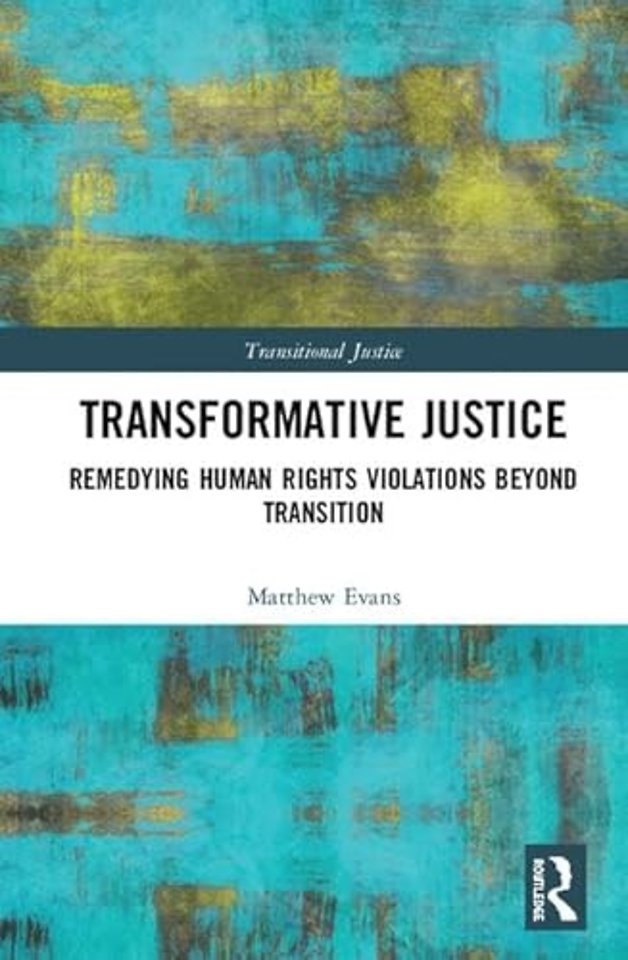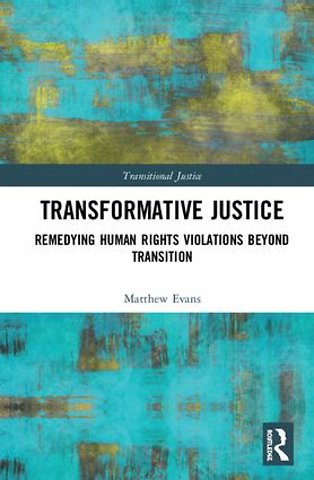Transformative Justice
Remedying Human Rights Violations Beyond Transition
Samenvatting
Transitional justice mechanisms employed in post-conflict and post-authoritarian contexts have largely focused upon individual violations of a narrow set of civil and political rights, as well as the provision of legal and quasi-legal remedies, such as truth commissions, amnesties and prosecutions. In contrast, this book highlights the significance of structural violence in producing and reproducing rights violations.
The book further argues that, in order to remedy structural violations of human rights, there is a need to utilise a different toolkit from that typically employed in transitional justice contexts. The book sets out and applies a definition of transformative justice as expanding upon, and providing an alternative to, transitional justice.
Focusing on a comparative study of social movements, nongovernmental organisations and trade unions working on land and housing rights in South Africa, and their network relationships, the book argues that networks of this kind make an important contribution to processes advancing transformative justice. Providing an opportunity for affected communities to articulate their concerns over socioeconomic rights issues, such networks provide a vital means by which existing structures and practices may be contested.
Trefwoorden
Specificaties
Inhoudsopgave
Preface
Acknowledgements
List of abbreviations
1.Introduction
-Introduction
-Background and context
Transitional justice and transformative justice in South Africa
Land and housing
-Advocacy networks
Action taken by networks
Structure, composition, capacity and resources
Positioning of NGOs, trade unions and social movements in South Africa
-Aims and objectives of the book
Themes
Focus
Political responsibility
-Research design
Case study research
Limits of case study research
The case study in this book
Case selection and purpose
Research strategy
Research tools and methods
Use of sociograms
-Scope and contribution of the study
-Structure of the book
-References
2. Structural violence, socioeconomic rights and transformative justice
-Introduction
-Structural violence and shortcomings of transitional justice
Structural violence
Critique of transitional justice
Defining transformative justice
-Applying concepts to the case study of South Africa
-Relevant actors and relationships for a transformative approach
-Conclusion
-References
3. Network relationships, existing ties and opportunities
-Introduction
-The case study network
Interpreting data on network relationships
Mapping the network diagrammatically
-Interrogating assumptions from the literature
Boomerangs and spirals
Framing, expertise and venue shopping
Key findings from mapping the network
-What kinds of ties already exist?
The Housing Assembly
The Poor People’s Alliance
Ties between both clusters
-What threats to and opportunities for more effective collaboration exist?
Specific characteristics of trade unions
Capacity and resources of social movements and community based organisations
Personalities, politics and organisational governance
Shared rhetorical commitments
-Conclusion
-References
4. Threats, limitations and political responsibilities in the network
-Introduction
-The Housing Assembly and the Poor People’s Alliance
Dividing political arenas
Agenda setting and strategy building
Raising and allocating financial resources
Information
Formalisation of relationships
-Transformative justice and political responsibilities of the network
Dividing political arenas
Agenda setting and strategy building
Raising and allocating financial resources
Information
Formalisation of relationships
-Conclusion
-References
5. Transformative justice processes, policies and practice
-Introduction
-The scope for transformative justice policies, practices and processes in South Africa
-Lessons for understanding the potential for transformative justice policies and practices
Mapping participation in the case study network
Relationships within the case study network
Evaluating political responsibility of the case study network
-Conclusion
Processes of transformative justice
Outcomes and resources
Political responsibility and transformative justice
-References
6.Conclusion
-Introduction
-The importance of power and of political responsibilities
-Lessons for research and practice
-Key contributions of the book
-What this book does not do
-Concluding remarks
-References
INDEX
Anderen die dit boek kochten, kochten ook
Rubrieken
- cadeauboeken
- computer en informatica
- economie
- filosofie
- flora en fauna
- geneeskunde
- geschiedenis
- gezondheid
- jeugd
- juridisch
- koken en eten
- kunst en cultuur
- literatuur en romans
- mens en maatschappij
- naslagwerken
- non-fictie informatief/professioneel
- paramedisch
- psychologie
- reizen
- religie
- schoolboeken
- spiritualiteit
- sport, hobby, lifestyle
- thrillers en spanning
- wetenschap en techniek
- woordenboeken en taal









